Search Results
Showing results 1 to 20 of 25
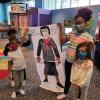
Body Biographies
Source Institutions
In this activity, learners will learn about a person they admire (famous, family or otherwise) or even themselves and create a life-sized silhouette.
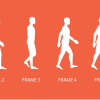
Design a Microexpression Zoetrope
Source Institutions
In this engineering design challenge, learners animate a facial expression and make a machine (zoetrope) that plays the animation back.
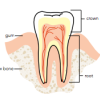
Paper Cover Up
Source Institutions
In this activity on page 11 of the PDF, learners use candle wax to make "invisible" designs that are revealed with watercolor paints.
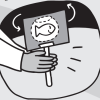
Thaumatrope
Source Institutions
In this activity, learners make an optical illusion toy from the 1800s to explore persistence of vision.
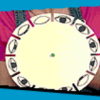
Phenakistascope
Source Institutions
In this optics activity, learners build an animation tool to make mini movies. When you spin a phenakistascope, the pictures move so quickly that your eyes and brain can't separate the images.
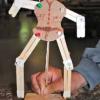
Lever Cowboy
Source Institutions
In this activity, learners build a figure that moves and "comes to life" when they pull its string.
Healthy Buffet
Source Institutions
In this nutrition activity (page 2 of the PDF), learners will be split up into food groups (Fruit, Vegetable, Meat & Beans, Grain, and Dairy) and draw a picture of their favorite food from their g

Soggy Science, Shaken Beans
Source Institutions
Learners explore soybeans, soak them in water to remove their coat, and then split them open to look inside. They also make a musical shaker out of paper cups, a cardboard tube, and soybeans.
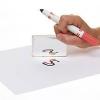
Mirror, Mirror
Source Institutions
In this activity, learners discover that it is difficult to trace a curve by using its reflection in a mirror. Use this activity to discuss how the brain works.
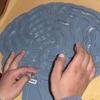
Tactile Mazes
Source Institutions
In this activity (15th activity on the page) about the sense of touch, learners use glue and cardboard to construct a maze they use with their eyes closed.
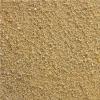
Touch Boards
Source Institutions
Use this activity (13th activity on the page) to introduce learners to the sense of touch. Learners collect objects of varying textures like feathers, rocks, sand, etc.
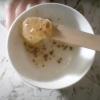
Clean Me Up, Snotty
Source Institutions
Learners will explore the chemistry of mucous and its importance to our health by following a process to make their own replica "snot." The activity includes a time and age recommendation, a materials
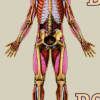
Sketch a Skeleton
Source Institutions
In this activity (on pages 15-18 of PDF), learners make a life-size two-dimensional paper model of their own skeletons.
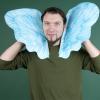
Designer Ears: Make “better” ears!
Source Institutions
Find out what it would be like to have ears shaped differently from your own! Design and make different animal ears then try them out.
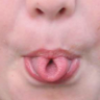
Family Traits and Traditions
Source Institutions
In this activity, learners play a matching game with their families to discover common inherited traits and traditions. Learners distinguish between inherited traits and learned traditions.
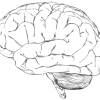
Train Your Brain
Source Institutions
In this activity, learners play a trick on their own brain to see if the brain can learn to ignore distracting input. Colors and words are used to play the visual trick, known as a Stroop Test.
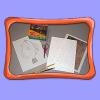
Crazy Camouflage
Source Institutions
In this activity about camouflage, learners create a model that shows how a flounder is able to blend into a variety of environments.
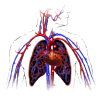
Circulatory System Skit: Act out the Flow of Blood
Source Institutions
In this activity, learners act out the flow of blood in the human body! A great way to get learners up and moving while learning about the circulatory system.
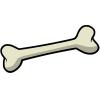
Calcium Collage
Source Institutions
In this activity (on pages 11-14 of PDF), learners cut out pictures from magazines of foods that help make bones strong and glue the pictures to a paper bone.
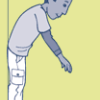
Throw Your Weight Around
Source Institutions
During this activity, learners take part in a variety of tasks which involve moving and balancing different body parts.
